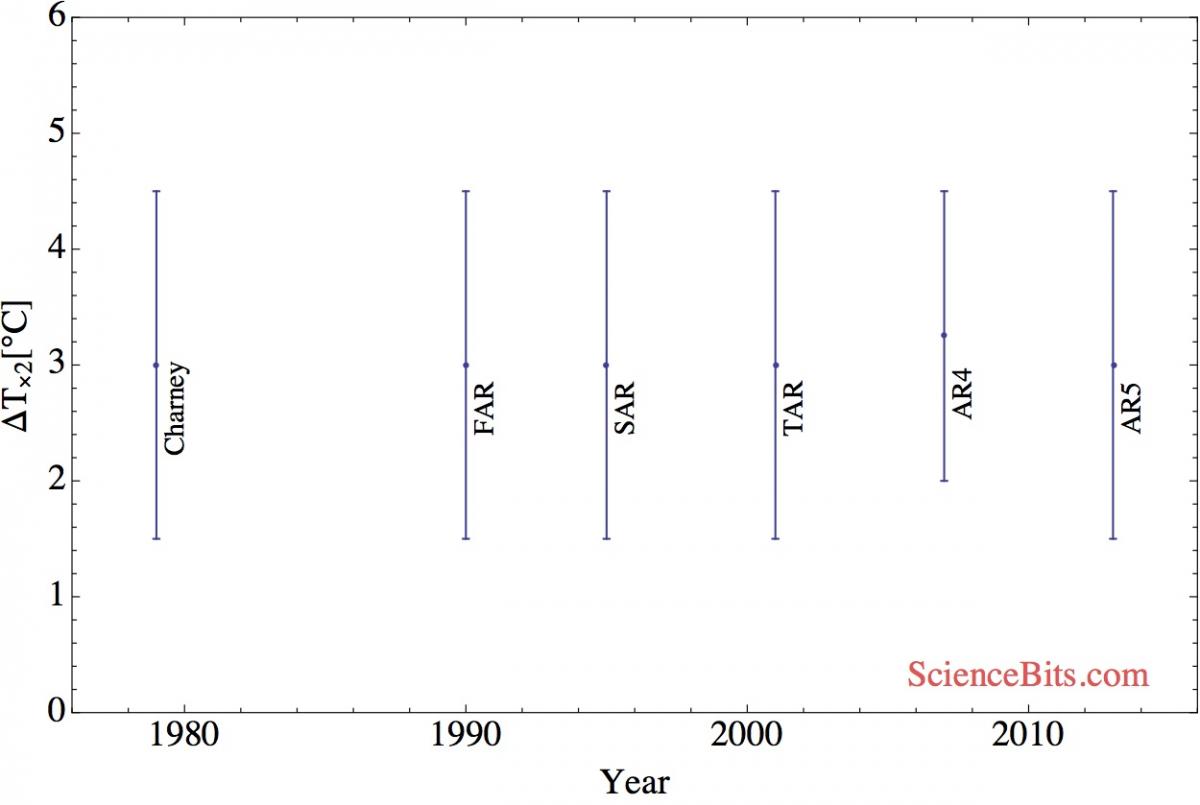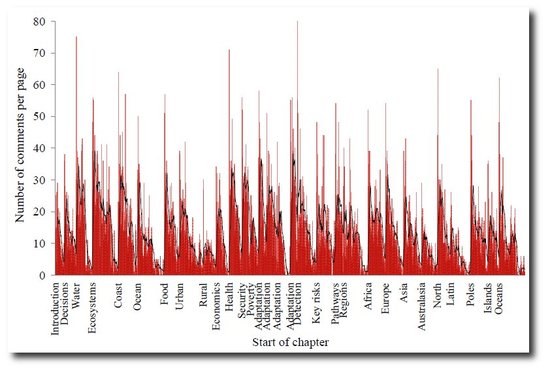Quote:
|
Why would they listen to anyone so disconnected from reality as to deny the fundamental truth of what is occurring?
|
Seems like most of the world isn't really listening to the IPCC any more - the wheels have come off that bandwagon - no more trips to Bali or Cancun for them. They will have to rack up the air miles on their own
expense from now on.
The comments under that "listen to me I'm a 'scientist'" video are mostly negative too, some quite nasty IMHO but the internets is not nice sometimes.
This is becoming more common now, the skeptical bit.
The only homes for full on catastrophy worship are sites like Desmogblog, SkS, Climate Progress and the Guardian. Apart from the Graun traffic on the other sites is slowly sinking.
Other newspapers are also more
openly skeptical.
Climate change 'scientists’ are just another pressure group - Telegraph
Quote:
The IPCC was set up in 1988 by a small group of scientists who were already wholly convinced that rising CO2 levels were the prime factor in causing global temperatures to rise. They were led by Prof Bert Bolin, appointed as the IPCC’s first chairman, and Dr John Houghton, then head of the UK Met Office, who, for 14 years, remained head of its key Working Group 1, responsible for reporting on climate science.
Since then the IPCC and its five major reports have essentially been shaped by a surprisingly small, close-knit group of scientists, all similarly dedicated to the cause. They have been determined not just to assemble all the evidence they could find to support their theory, however dubious it might be (as in the case of that notorious “hockey stick” graph); but, as we saw from the Climategate emails, to deride or ignore any that contradicted it.
In years to come this will be looked back on as the most astonishing example in history of how the prestige of “science” can be used to promote a particular belief system, in this case with the aid of those skewed computer models that can be seen ever more clearly not to accord with the observed evidence.
All this would not be so serious if the IPCC had not been so successfully sold to the world as an objective scientific body rather than as just a political pressure group, because this has taken in no one more damagingly than all those credulous politicians who use the IPCC’s bogus prestige to justify landing us with some of the most disastrously misconceived policies the world has ever seen.
|
We've even had a
debate in the UK Parliament about repealing the Climate Change Act something unheard of a few years ago.
The uk government is starting to
backtrack on the cost of it all.
The BBC is openly allowing skeptical voices on the air, sometimes without calling them names. This
annoys the Guardian, good.
But back to the science, reactions to AR5 are coming in,
and some are not fans :
Quote:
More seriously, let me put this in perspective with the most boring graph I have ever plotted in my life. Below is the likely range of climate sensitivity as a function of time. As you can see, with the exception of AR4 with its slightly smaller range mentioned above, the likely range of climate sensitivity did not change since the Charney report in 1979. In other words, after perhaps billions of dollars invested in climate research over more than three decades, our ability to answer the most important question in climate has not improved a single bit!

One reason for the lack of improved understanding could be incompetence of the people in the field. That is, all the billions of dollars invested in climate research were not or could not be used to answer the most important question in climate, one which will allow predicting the 21st century climate change. I doubt however that this is the real reason. Among the thousands working in climate research, surely there are at least a few who are competent, if not more.
I think the real reason why there is no improvement in the understanding of climate sensitivity is the following. If you have a theory which is correct, then as progressively more data comes in, the agreement becomes better. Sure, occasionally some tweaks have to be made, but overall there is an improved agreement. However, if the basic premises of a theory are wrong, then there is no improved agreement as more data is collected. In fact, it is usually the opposite that takes place, the disagreement increases. In other words, the above behavior reflects the fact that the IPCC and alike are captives of a wrong conception.
|
He's a scientist too.
How about another scientist with a
description of extreme weather coverage in AR5 ?
Quote:
“Overall, the most robust global changes in climate extremes are seen in measures of daily temperature, including to some extent, heat waves. Precipitation extremes also appear to be increasing, but there is large spatial variability"
"There is limited evidence of changes in extremes associated with other climate variables since the mid-20th century”
“Current datasets indicate no significant observed trends in global tropical cyclone frequency over the past century … No robust trends in annual numbers of tropical storms, hurricanes and major hurricanes counts have been identified over the past 100 years in the North Atlantic basin”
“In summary, there continues to be a lack of evidence and thus low confidence regarding the sign of trend in the magnitude and/or frequency of floods on a global scale”
“In summary, there is low confidence in observed trends in small-scale severe weather phenomena such as hail and thunderstorms because of historical data inhomogeneities and inadequacies in monitoring systems”
“In summary, the current assessment concludes that there is not enough evidence at present to suggest more than low confidence in a global-scale observed trend in drought or dryness (lack of rainfall) since the middle of the 20th century due to lack of direct observations, geographical inconsistencies in the trends, and dependencies of inferred trends on the index choice. Based on updated studies, AR4 conclusions regarding global increasing trends in drought since the 1970s were probably overstated. However, it is likely that the frequency and intensity of drought has increased in the Mediterranean and West Africa and decreased in central North America and north-west Australia since 1950”
“In summary, confidence in large scale changes in the intensity of extreme extratropical cyclones since 1900 is low”
|
In other words nothing much to see here, move along.
And what about all that reviewing - here is a graph of review comments by page :

Note how the review comments drop off after the first chapter pages - boredom setting in perhaps ?
The IPCC is done.